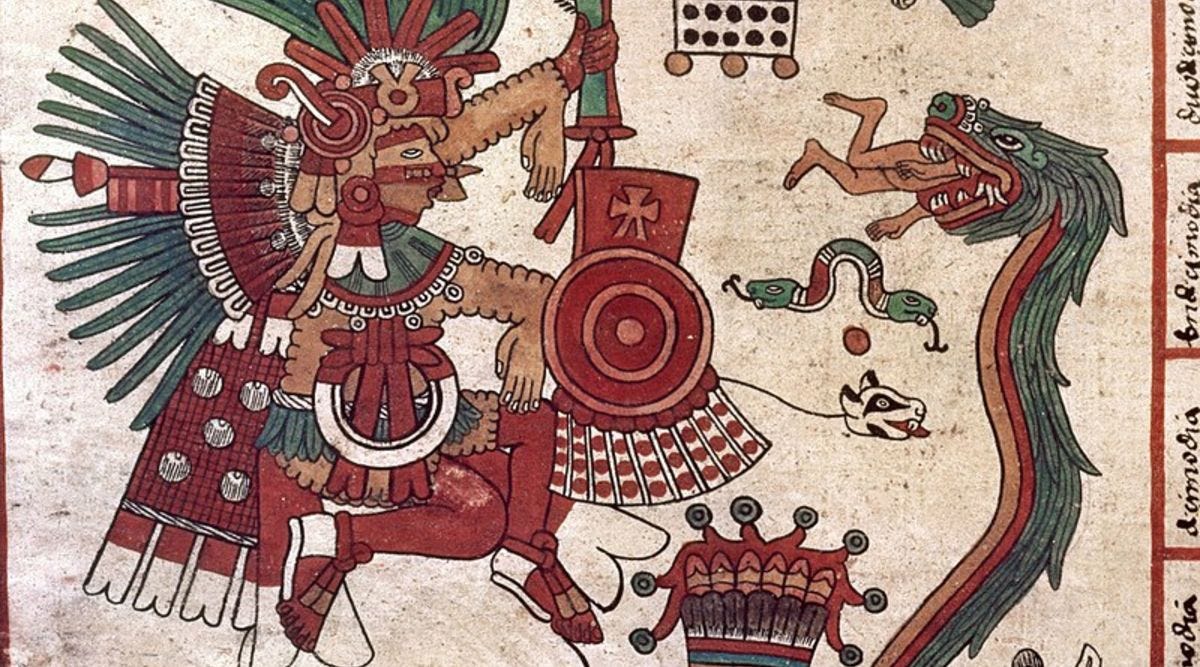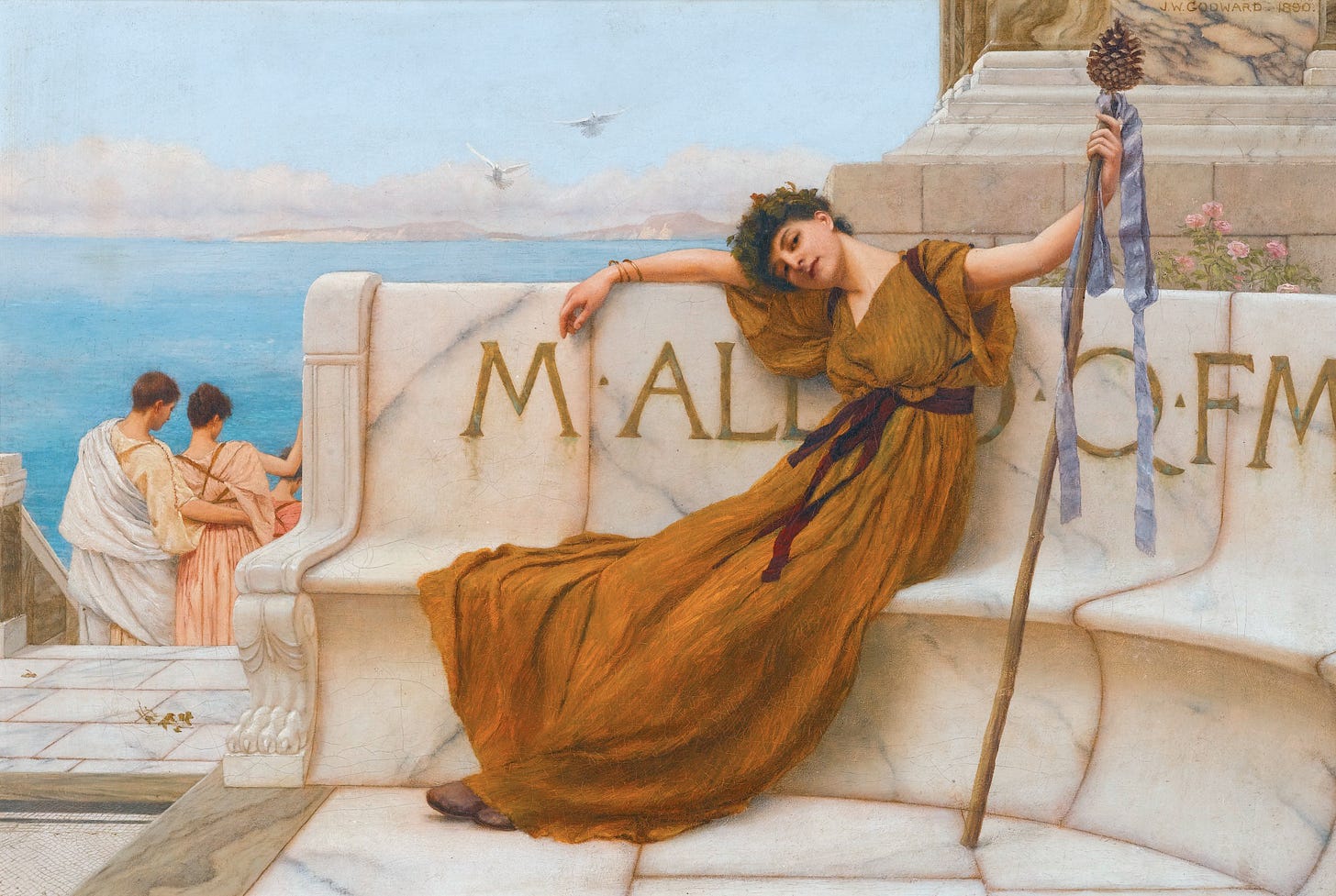Truth Seeking
The Machine Will Never Triumph, part forty-seven
Search for truth.
Search for nothing any more, nothing
except truth.
Be very still, and try and get at the truth.
And the first question to ask yourself is:
How great a liar am I?1
If one is to search for anything in life—and it is not really necessary to search at all if you realize that in the stillness of the present moment everything you think you needed to search for is already present—it should be truth; not money, power, fame, or fortune, but truth. And truth is both the easiest and hardest thing to grasp. The more you try to force yourself into an awareness of the truth, the more distant the truth will become. To get at the truth, one needs to be still and to be alive to the present moment. Grasping for the truth pushes the truth away, but being receptive to the truth allows the truth to penetrate one, slowly at first, then with powerful, reverberating waves straight from the Real. The truth is not to be found in the past, nor in the future, but now. “There is no Before and After, there is only Now[.]”2 As such, the greatest sources for the truth are the natural world’s beauties, and one’s own soul. Truth is, largely, not to be found in books—though some books can be pointers towards the truth. Lawrence describes, in the following passage, how books may often be sources of falsehood rather than truth:
The worst of a book is the way it shuts up between covers. When men had to write on rocks and obelisks, it was rather difficult to lie. The daylight was too strong. But soon he took his venture into caves and secret holes and temples, where he could create his own environment and tell lies to himself. And a book is an underground hole with two lids to it. A perfect place to tell lies in.
Which brings us to the real dilemma of man in his long adventure into consciousness. He is a liar. Man is a liar unto himself. And once he has told himself a lie, round and round he goes after that lie, as if it was a bit of phosphorus on his nose-end. The pillar of cloud and the pillar of fire wait for him to have done. They stand silently aside, waiting for him to rub the ignis fatuus off the end of his nose. But man, the longer he follows a lie, becomes all the surer he sees a light.3
So, much of what passes for knowledge today is false, and the longer falsehoods are proclaimed to be true, the more people believe them. There is no reason to believe in the “big bang” or evolution, save that the modern priests of science tell you to do so. Modern science is no truer than traditional religion, and in many respects is far less true, but people today blindly believe in science and claim it is objective, while, in truth, it is more like a subjective, man-made religion for modernity’s masses. Any modern man may find the truth, but he must first surrender his ego on the altar of the Gods. As Klages writes: “He who seeks shall find, but only after he has surrendered his being to the guidance of the gods.”4
The half-blind
The bourgeois and the bolshevist are both blind
hence the ridiculous way they rush in where angels fear to tread.
They can’t see it.
But among the bourgeois and the bolshevist bounders
one notices men here and there, going hesitatingly, faltering
with the pathos of those who can see, but whose sight is dim.
And these, the minority of men who can still see the light of life
give way all the time before the mechanical rushing of the ugly stone-
blind ones.5
Capitalism and socialism are not the only ways forward: there is a third way, the way of Lawrence, of Rananim. Though many people today are robots, there are some men and women who see the sun for what it truly is, and sense the reality of the Gods and the Fire beyond the Gods. Yet, those men and women largely give in to a satanic system and sacrifice themselves to the Machine because they don’t realize that another path is possible. These people need to extricate themselves from the Machine and to find a great spiritual leader, a sun-man, to guide them, and the world, to Rananim. There is really only one primary goal in life, namely to find a God or Gods and to get one’s soul into communion with them. The vast masses of humanity will do everything in their power, even if unconsciously, to hinder a man on his path to his God. Very few people can come into contact with the Divine on their own, namely the sun-men, but for the rest, let them exert their strength in trying to find a sun-man, then let them find the Gods through the sun-man’s guidance. As Lawrence writes:
There is only one thing that a man really wants to do, all his life: and that is, to find his way to his God, his Morning Star, and be alone there. Then afterwards, in the Morning Star, salute his fellow man, and enjoy the woman who has come the long way with him.
But to find the way, far, far along, to the bright Quick of all things, this is difficult, and requires all a man’s strength and courage, for himself. If he breaks a trail alone, it is terrible. But if every hand pulls at him, to stay him in the human places: if the hands of love drag at his entrails and the hands of hate seize him by the hair, it becomes almost impossible.6
Thought
Thought, I love thought.
But not the jaggling and twisting of already existent ideas
I despise that self-important game.
Thought is the welling up of unknown life into consciousness
Thought is the testing of statements on the touchstone of the conscience
Thought is gazing on to the face of life, and reading what can be read,
Thought is pondering over experience, and coming to conclusion.
Thought is not a trick, or an exercise, or a set of dodges
Thought is a man in his wholeness wholly attending.7
Thought is good, so long as it is thought as it should be. Thought is not hermeneutical acrobatics, deconstruction, or problems in math and physics. Thought, as Lawrence declares is “man in his wholeness wholly attending.” True thought is inseparable from mystical enlightenment. Standing—humbly—before a tree and coming to know the tree, and through it the Gods of the tree, is thought, true thought. This is why we can say, rightly, that modern people are generally unthinking. In fact, there is, generally, more true thought in a novel than in a mathematical or philosophical treatise, because the novel is shot through with life. But, the modern novel is largely free from most traditional wisdom, so it tends to be false as well. The ancients never separated story and philosophy/theology; they were a unified whole, and therefore true. As Lawrence declares:
It seems to me it was the greatest pity in the world, when philosophy and fiction got split. They used to be one, right from the days of myth. Then they went and parted, like a nagging married couple, with Aristotle and Thomas Aquinas and that beastly Kant. So the novel went sloppy, and philosophy went abstract-dry. The two should come together again, in the novel. And we get modern kind of gospels, and modern myths, and a new way of understanding.8
In modern times it is only Lawrence who fully brought together fiction and philosophy, and then elevated them to a new kind of gospel. We gave ourselves over to the Machine very quickly. Let us follow Lawrence, and escape the Machine’s clutches; let us forgo the modern, embrace the traditional, but in a new way. “Let the ideas change rapidly, and there follows a correspondingly rapid change in humanity. We become what we think.”9 And if we choose to embark on this new path, know that Lawrence had predecessors who can help guide us on our journey. Some of those predecessors were termed the pre-Socratics:
The student who immerses himself, lovingly and intelligently, in the symbolic language of the pre-Socratics, must unfailingly conclude that no succeeding age—and especially not that of the pretentious twin peaks of Hellenic wisdom, Plato and Aristotle!—has matched the profundity and panoramic scope of those dazzling philosophical ruins that we continually visit in our quest for wisdom: Thales, Anaximander, Heraclitus, Empedocles, and Pythagoras are their names. The least that can be said of these giants is that they were well on the way to the discovery that an authentic interpretation of the world must entail a doctrine of life. They also understood that the mechanistic aspect of reality should be reduced to the status of an insignificant by-product of the living world.10
What would a truly Lawrencian philosophy look like? Wouldn’t it just amount to another system? No, most emphatically not. Lawrence purposely chose not to write systematic treatises, but wrote in the same manner as the ancient sages. There is a whole way of life in his poems, plays, and novels, and there is life pulsing through his essays. A Lawrencian metaphysic would look inward rather than outward, as described by Klages:
A pagan metaphysical system would not be philosophy as one understands that word today, i.e., the hair-splitting rehashing of such life-alien concepts as would be appropriate to the lecture hall; nor would it be characterized by that sort of factitious profundity that seeks to conceal its utter inability to solve the riddles of thought behind a veil of second-rate poetic fables. Neither should a genuine pagan metaphysics resemble that which passes for science in the modern world, for science, in spite of its outstanding achievements, is in danger of becoming the mere discovery in cognition of truths which may be necessary, but which are also, considered from the standpoint life, utterly unimportant. Before we can discover truths that go to the very roots, we must possess a greater fund of inwardness than can be discerned in those thinkers who, for at least the last five hundred years, have expended their energies exclusively within the realm of reason.11
Bibliography
Klages, Ludwig. Cosmogonic Reflections. Translated by Joseph D. Pryce. London: Arktos, 2015.
Lawrence, D. H. Late Essays and Articles. Edited by James T. Boulton. Cambridge: Cambridge University Press, 2014.
———. Reflections on the Death of a Porcupine and Other Essays. Edited by Michael Herbert. Cambridge: Cambridge University Press, 1999.
———. Study of Thomas Hardy and Other Essays. Edited by Bruce Steele. Cambridge: Cambridge University Press, 2002.
———. The Plumed Serpent. Edited by L. D. Clark. Cambridge: Cambridge University Press, 2002.
———. The Poems. Edited by Christopher Pollnitz. Vol. 1. Cambridge: Cambridge University Press, 2013.
D. H. Lawrence, The Poems, ed. Christopher Pollnitz, vol. 1 (Cambridge: Cambridge University Press, 2013), 570.
D. H. Lawrence, The Plumed Serpent, ed. L. D. Clark (Cambridge: Cambridge University Press, 2002), 175.
D. H. Lawrence, Reflections on the Death of a Porcupine and Other Essays, ed. Michael Herbert (Cambridge: Cambridge University Press, 1999), 197.
Ludwig Klages, Cosmogonic Reflections, trans. Joseph D. Pryce (London: Arktos, 2015), 10.
Lawrence, The Poems, 1:574.
Lawrence, The Plumed Serpent, 253–54.
Lawrence, The Poems, 1:580–81.
D. H. Lawrence, Study of Thomas Hardy and Other Essays, ed. Bruce Steele (Cambridge: Cambridge University Press, 2002), 154.
D. H. Lawrence, Late Essays and Articles, ed. James T. Boulton (Cambridge: Cambridge University Press, 2014), 42.
Klages, Cosmogonic Reflections, 79.
ibid., 143.




